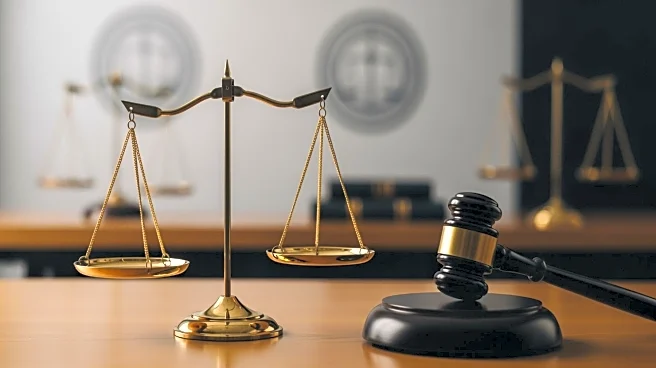What's Happening?
A federal judge in Chicago has expressed concern over the actions of immigration agents who allegedly violated her orders regarding the use of tear gas on media and protesters. U.S. District Judge Sarah Ellis has summoned the field director for Immigration
and Customs Enforcement (ICE) to court to address these issues. The judge is considering modifying a temporary restraining order to require agents to activate body-worn cameras during public encounters. This development follows Ellis's ruling that federal agents infringed on the rights of reporters and protesters during immigration arrests in Chicago. The restraining order prohibits agents from using tear gas and projectiles against peaceful protesters unless there is an immediate threat of harm. The Department of Justice has objected to the order, citing potential operational challenges.
Why It's Important?
The judge's actions underscore the ongoing tension between federal immigration enforcement and civil rights protections. The ruling highlights the importance of safeguarding First Amendment rights, particularly in the context of protests and media coverage. The case has broader implications for how federal agencies conduct operations in sanctuary cities like Chicago, where local policies often conflict with federal immigration enforcement. The outcome of this legal battle could influence future interactions between federal agents and civilians, potentially setting precedents for the use of force and surveillance in public spaces.
What's Next?
The ICE field director is expected to appear in court to provide updates on compliance with the judge's orders. The plaintiffs have filed a motion for expedited discovery ahead of a hearing on a full injunction. This legal process may lead to further restrictions on federal agents' actions in Chicago. The Department of Justice's objections suggest potential appeals or modifications to the restraining order. The case may prompt discussions among policymakers and civil rights groups about balancing immigration enforcement with constitutional rights.
Beyond the Headlines
The case raises ethical questions about the use of force and surveillance by federal agents. It also highlights the cultural and legal challenges faced by sanctuary cities in navigating federal immigration policies. The situation may lead to increased scrutiny of federal agencies' practices and their impact on community relations. Long-term, this case could influence national debates on immigration policy and civil liberties.
















